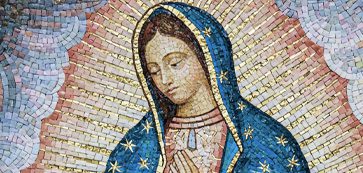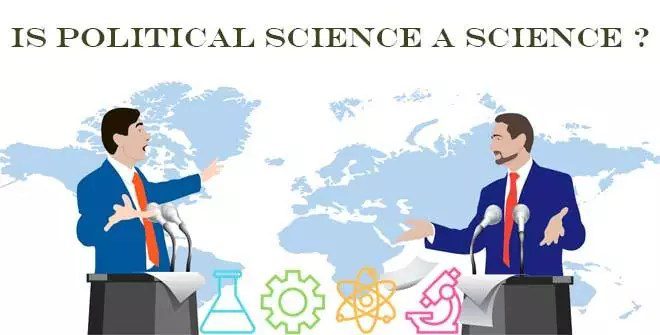Introduction
Possible Preaching Themes
Possible Scientific Resources
- Today’s liturgy invites us to reflect on justice, especially for those with less power and with more need
- The first reading reveals how God calls his community to special care for aliens, widows and orphans
- Matthew presents Jesus as the new Moses, who came to fulfill and refine the Mosaic law
- As a special aid for fulfilling that second commandment, the Church has given us crucial documents known as Catholic Social Teaching.
- Religious commitment is not only about following religious laws but also a call to care for others (first reading and the Gospel)
- Spiritual power is need to love God with our all our strength (Psalm)
- Leaders guide through their good example (second reading)
- The science in Politic Science
- Short article explaining political science as real science https://schoolofpoliticalscience.com/is-political-science-a-science/
- Encyclopedia article on the history of political science https://www.britannica.com/topic/political-science/Historical-development
- Overview article on the nature of political science https://socialsci.libretexts.org/Courses/Mizzou_Academy/AP_US_Government_and_Politics/01%3A_Thinking_Like_a_Political_Scientist/1.04%3A_Political_Science_as_a_Social_Science
- Strength and Anatomy
- Easy read about exercises that can improve your health https://www.nia.nih.gov/health/four-types-exercise-can-improve-your-health-and-physical-ability
- Short Harvard Health bulletin about how to stay strong as you age https://www.health.harvard.edu/blog/how-to-stay-strong-and-coordinated-as-you-age-202112022651#:~:text=Participate%20in%20aerobic%20exercise%20such,%2C%20Pilates%2C%20and%20isometric%20weightliftingAcademic article on the “science of strength” https://pubmed.ncbi.nlm.nih.gov/28129281/
- Leadership
- Short article from Forbes on the new science of leadership. https://www.forbes.com/sites/tracybrower/2022/11/20/new-science-of-leadership-it-only-takes-3-things-to-succeed/?sh=3d42bd52230b
- Overview of 15 science backed leadership skills https://www.scienceofpeople.com/leadership/
- Scholarly article on the science of leadership https://psycnet.apa.org/record/2014-43617-000
Homily Outline Combining Resources
Homily outline employing political science
- The phenomenon of laws
- Throughout history, many peoples established sets of written or unwritten rules and regulation
- Such rules benefit various segments of society, e.g., men, the wealthy or the entrepreneurial
- They can similarly oppress various segments of society, e.g., women, children or slaves
- Religions also have rules and regulations, sometimes intended to protect the deity and sometimes intended to protect various segments of believers
- Israel received 10 laws from God
- Some of which seem to protect the honor God (the first four)
- Others seem to the family oriented (the fifth and seventh)
- The protection of people with property or goods are protected in some (the eighth and tenth)
- The remainder seem primarily to protect the common good and societal order (the sixth and ninth).
- There are some groups that are not explicitly protected by these commandments
- Today’s first reading provides prescriptions for protecting some vulnerable groups, such as widows, children and aliens
- The turn to political science
- It is common to speak about politics as the art of the possible, but the science of politics involves much more
- Some, including some political scientists themselves, contend that political science is not really a science
- Others, however, contend that many social scientists (including political scientists) employ the scientific method in the same way that natural sciences do
- This means they
- make careful observations of political behavior
- generate hypotheses about that behavior
- conduct experiments to test the hypotheses
- collect and analyze the data from the experiments
- draw conclusions, when possible, from the analysis
- and communicate the results
- Jesus the political scientist?
- Quite often theologians, preachers and catechists tag Jesus with labels of varying accuracy or appropriateness
- He has been alternately dubbed a pacifist, feminist, revolutionary and multiple other things
- As the Son of God, Jesus is a unique human manifestation who cannot be adequately defined with facile labels
- On the other hand, these admittedly inadequate labels can be instructive for our journey into the mystery of the Only-begotten.
- Thus it is enlightening to think of Jesus as the primordial political scientist for multiple reasons
- He was a keen observer across genders, economic class, age cohorts and states of well-being
- His new vision of God’s reign could be understood as a spiritual hypothesis, well summarized in the Beatitudes
- His selection of disciples as well as his public ministry more generally could be considered an “experiment,” testing the effectiveness of his hypothesis
- His analysis often resulted in a critique of his home religious institution, especially its leaders and the rethinking of the Law
- From Political Scientist to Law-giver
- Matthew presents Jesus as the new Moses, who came to fulfill and refine the Mosaic law
- That law had become burdensome, the proverbial heavy yoke, that Jesus made lighter by distilling all commandments into two: love of God and love of neighbor
- But like the 10 commandments given to Moses, some might define the love of neighbor narrowly
- A tendency that Jesus himself confronted in his Good Samaritan parable
- The gift of Catholic Social Teaching
- Jesus’ teaching was not defective but the New Testament can be and often is misinterpreted, e.g., to
- justify slavery
- oppress women
- and even understand poverty as a desirable economic position
- Akin to today’s first reading, offering important interpretive keys to the decalogue
- Catholic Social Teaching, is an essential interpretive key not just for understanding but, more importantly, for living out Jesus’ dual command to love God and neighbor
- Pope Francis’ 2020 letter Fratelli Tutti “on fraternity and social friendship” is a particularly pointed instruction for us today
- Well summarized in its closing prayer:
- Lord, Father of our human family,
you created all human beings equal in dignity:
pour forth into our hearts a fraternal spirit
and inspire in us a dream of renewed encounter,
dialogue, justice and peace.
Move us to create healthier societies
and a more dignified world,
a world without hunger, poverty, violence and war.
May our hearts be open
to all the peoples and nations of the earth.
May we recognize the goodness and beauty
that you have sown in each of us,
and thus forge bonds of unity, common projects,
and shared dreams. Amen.
- Lord, Father of our human family,
- Jesus’ teaching was not defective but the New Testament can be and often is misinterpreted, e.g., to
Related Homily Outlines
Couldn’t find what you’re looking for?
Try searching with another filter

Preaching with Sciences

Edward Foley, Capuchin
Duns Scotus Professor Emeritus of Spirituality
Professor of Liturgy and Music (retired)
Catholic Theological Union
Vice-Postulator, Cause of Blessed Solanus





